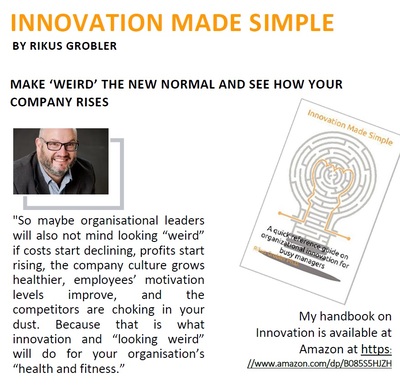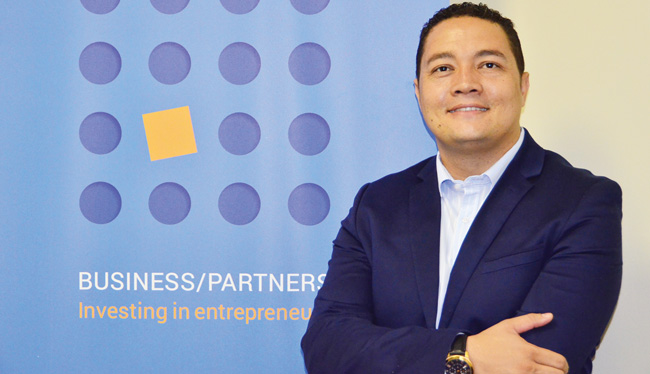
Innovation never takes place without proper execution

By Rikus Grober, www.nis.co.na, [email protected].
I diverted from my sequence of articles with the last two deliveries to share my views on how innovation relates to the current changes that are forced upon us. In essence, my advice is that fear is the enemy and that a crisis such as the world is experiencing at present should be seen as an opportunity for innovation.
Based on what I have seen that people are doing during lockdown to keep themselves busy and how organisations are already adapting to the “new normal,” it is once again irrefutable proof that people are inherently very creative!
I always include “implementation” as a core element in my definition of innovation. If an idea is not implemented, that is all it is, an idea, and it can not be regarded as innovation. Execution is also the part of innovation that most organisations (and people) struggle with, so I want to discuss the discipline of execution in the following couple of deliveries.
Ideas are a dime a dozen
I want to start the discussion around execution by looking at the reasons why organisations struggle with execution. How many times in your organisation did a great idea surface (in whatever way) and everybody agreed that “this is a great idea. We must do it!” Only to ask “what happened” six months later when the realisation is made once again, that a great idea did not come to fruition.
The answer is simple, and I have discussed this in previous articles as well. Organisations (i.e., the people that run them) are characteristically afraid of change and taking risks. Organisations have limited capacity and resources to deliver on new ideas, and when people have to choose between a “safe” option – something that has been done before – and an option where they are not sure how it is going to play out, the safe option usually wins. I don’t want to go into the detail of this phenomenon again, I just want to point out it is probably the main cause of why execution does not happen.
Secondly, if organisations get to the stage where people value ideas and are not afraid to share ideas, lots of good ideas start coming in. Again, due to limited capacity and resources, every single idea can not be implemented, and organisations have to start choosing which ideas to take forward and which ideas to ditch.
This can become a cumbersome exercise, and if organisations do not have clear guidelines on where innovation efforts must be focused, ideas can get stuck in “analysis paralysis” or when the “wrong” ideas get chosen, it feeds the “fear of change and risk cycle” all over again.
Obviously, the amount of risk and effort for implementing ideas is different for every kind of idea.
Implementing a large new IT system that will cost a lot of money and take a lot of time, is different from adding a new marketing slogan to your e-mail signature. The former will require capable project management disciplines, and the latter can be done by a single person with the click of a few buttons. Yet, I know of many ideas that are quick and easy to implement, and that can add a lot of value, but still, they do not get implemented.
With the large IT system implementation, SKILL in execution is what makes the difference. With the implementation of a “quick win” (i.e., a “small” idea), the WILL to execute is what makes the difference.
Then there is also the case where organisations are forced to implement new ideas due to unforeseen external factors, as we are experiencing now with the spreading pandemic.
Next Time
I listed some of the main reasons why organisations struggle with innovation implementation. A culture of execution does not happen overnight. It requires a lot of change and effort. In the next delivery, I will discuss the matter of fostering a culture of execution.
I conclude with the wisdom of Amit Kalantri: “Sometimes the loss from taking a wrong action is less than the loss from taking no action.”
Click on the thumbnail below to order Dr Grobler’s e-book on Innovation from Amazon.














































